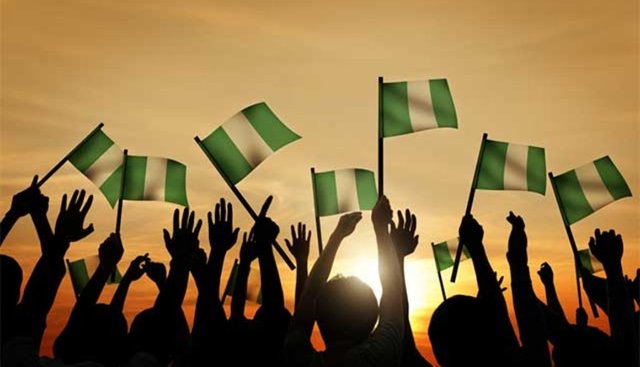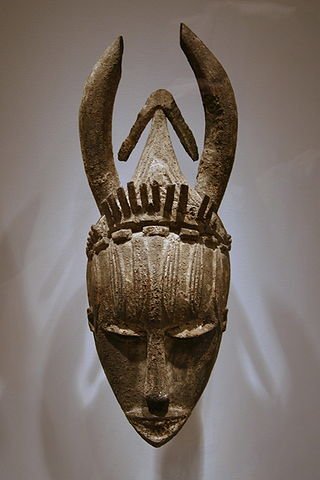NIGERIAN LIFETYLE AND CULTURE #2: THE URHOBOS

Nigeria is made up of over 250 ethnic groups, with diverse culture and traditions, which cuts across our lifestyle, food, religion, fashion, and beliefs. These ethnic groups consists of three majority groups - Yoruba, Hausa, and Igbo, and numerous minority groups, of which include; Ijaw, Benin, Efik, Urhobo, Isoko, Kanuri, Itsekiri, among others. These tribes are grouped as such based on their population and territory. Over the course of subsequent posts, I am going to try and enlighten Steemians on the lifestyle and culture of a few of our ethnic group. Starting with the Urhobos, not for any preferential reason...well, aside from the fact that am Urhobo. 😉


A Man and Woman in Traditional Urhobo Attire (Source)
THE URHOBO people are found in southern Nigeria, of the western Niger-Delta region, in main towns of Abraka, Effurun, Ughelli, Sapele, and Warri, all in Delta State. With a population of more than 2 million, it is the fifth largest ethnic group in Nigeria. The history of the Urhobo people is largely undocumented. The origin of the Urhobo people lack any specific reference to ancestors, other than the fact that 'we are Urhobo'. Unlike that of the Benin people, who has traces of their origin linked by various versions, for instance their being descended from supreme beings (Osanobua) and being led by Ogisos (Sky kings).
The Urhobo people history by popular reference, begins from Udo and Edo, located at the Benin territory. They have a social and cultural affinity to the Edo people of Nigeria. It is said that many Urhobo and other groups from Edo state, migrated to different destinations, in search of peace in different territories, that is less populated but more economically resourceful. The discovery of oil in the territory of the Urhobo people, has been both a mix of blessing and hindrance to it's environment, in form of land and water pollution, as well as civil unrest caused by the allocation of this resource's revenue.
The culture of the Urhobo people, comprises of the following:
GOVERNANCE
The Urhobos are organized into two different political kingdoms, gerontocracies and plutocracies. The Urhobo government structure occurs at two levels, kingdom and town. The people are organized either by elders or by the wealthy. Urhobo indigenous governments have an Ovie (king), who is the highest political figure. The Ovie is the symbol of the kingdoms' culture and royal predecessors. His Councillors consist of the Otota (speaker), and the Ohoveworen or Okakoro, addressed collectively as Ilorogun (singular: Olorogun). Other title holders are the executioners (Ikoikpokpo), and the warriors (Ogbu). Other political titles are specific to the different kingdoms. The judicial system places a clear distinction between civil and criminal offenses. The queen, is called Ovieya, and her children are known as Ọmọ Ovie. Presently, this name is given to children without royal heritage (Wikipedia). In all, the Urhobo group consist of 24 kingdoms with a common origin, with slight variations of the Urhobo language, forming sub-dialects.
FESTIVALS
The various kingdoms of the Urhobos have their individual traditional festivals. The festivals are usually centered around their indigenous spirit worship of the various kingdoms. Festivals can last from two days to a week, and are marked by masquerade parades, dancing around towns, swimming and fishing contests (for riverine communities), etc.
Examples of such festival includes Ohworu of Evwreni Kingdom, Omanuku of Ughelli Kingdom. In Agbassa, the Iyerin festival is celebrated annually, as well as Esemor and Iniemor. Another festival, known as Idju, is celebrated every two years throughout all the communities of Agbassa, as well as Okere-Urhobo. This festival is known as Agbassa Juju, and it centers around the worship of the Owurhie, a Warri deity.
RELIGION
The Urhobos worship Oghene (God), that is the supreme deity, and recognizes the Edjo and Erhan as divinities who can be recognized as personified attributes of Oghene. Seperate divinities are worshiped and prayed to for dedicated purposes. The guardian deities are consulted in times of dire need of spiritual leadership, the war deities in times of war and conflict, prosperity deities are prayed to for blessings and sustainability, and lastly, fertility deities are prayed to for fertile lands and children. However, with the advent of Christianity, there have been a huge influence of this religion on the Urhobo traditional worship. Christianity is now widely accepted in many communities of the Urhobo land. Another important element is the Erivwin. This is the cult of ancestors and predecessors (Esemo and Iniemo). The dead are believed to be living, and looked upon as active members who watch over the affairs of their family. Urhobos believe in the duality of man, i.e., that man consists of two beings - physical body (Ugboma) and spiritual body (Erhi).
MARRIAGE
The marriage rite and customs are marked by traditional prayers, offered to ancestors and God. The ritual process is known as Udi Arouwaje, which takes place in the home town of the bride. On an agreed ate set for the traditional marriage, the man takes soft drinks, goat, kolanuts, dry gin, an other things required of him to the home of the bride. It is on this day that the parents give formal approval to the union of the children, after a set amount of 120NGN is paid as 'bride price'. The parents offer prayers to God and ancestors, by pouring gin on the floor, to bless them with health, wealth, and children.
After the death of the woman, it is practice that she is brought back to her family home. It is believed that it is only the physical body of the woman that is sent to the man in marriage, and that her Erhi (spirit) remain in the family home. In cases of marriage failure, the marriage is annulled and the bride price reclaimed by the husband.
ARTS

An Urhobo Mask (Source)
The Urhobo arts comprises of their masquerades, carvings and sculpture which establishes mediums for gods and mortals to communicate. They express the values of Urhobo society, personal image, shrine, etc.
CALENDAR
The Urhobo week is made up of four days, which dictates holdings of religious worship, marriage, market days, and other activities. The four days are Edewo, Ediruo, Eduhre, and Edebi. The Edewo and Eduhre are sacred days to divinities, spirits and and ancestors.
FOOD
The traditional food of the Urhobos include;
- Ukhodo, which is basically yam and unripe plantain in a soup base, with lime grass, scent leaf, potash, and meat or fish of choice. (This happens to be my personal favorite, with goat meat).
- Oghwevwri (Ogwho) Soup, also called palm oil soup, is cooked with dried fish, meat, potash, crayfish, and palm oil. It is a very thick soup that is eaten with starch (usi), or garri (Eba).
- Banga Soup is made form extracts from palm nuts, and is eaten with usi or eba.
- Other delicacies include Iriboto and Okpariku.

NIGERIAN LIFETYLE AND CULTURE #1
Resteemed your article. This article was resteemed because you are part of the New Steemians project. You can learn more about it here: https://steemit.com/introduceyourself/@gaman/new-steemians-project-launch . If your post has more upvotes, your post will appear in the trending page. To get more upvotes, you can bid for @steembidbot vote. please check it out here: https://steembottracker.com/